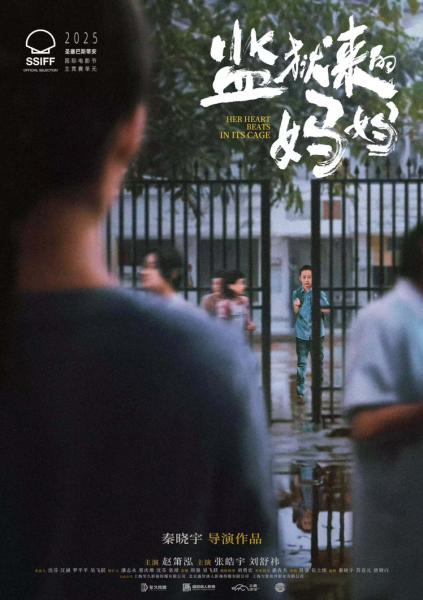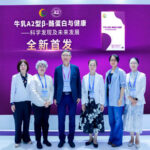On September 25th, the creative team behind the Chinese film “The Mother from Prison” revealed that this work, directed by Qin Xiaoyu and meticulously crafted over seven years, is the only Chinese film selected for the main competition unit of the 73rd San Sebastián International Film Festival, unveiling itself for the first time to global film enthusiasts and industry experts.
It is reported that on the day of the premiere, the screening hall, which can accommodate over 1,800 people, was completely full. After the film ended, the audience spontaneously rose to their feet, giving the creative team a warm round of applause that lasted for twenty minutes. Many audience members had tears in their eyes, and some Western viewers repeatedly expressed “thank you” and “good” in Chinese. The sustained applause was both high recognition of the film’s artistic quality and a reflection of the audience’s deep resonance with the universal emotions in the story.
From the initial story concept to the final presentation, the creative team poured seven years of effort into “The Mother from Prison.” The film eschews flashy external dramatic conflicts, instead using a restrained yet resilient narrative and a warm, profound perspective to focus on the life journey of a special mother. The story revolves around a woman who has experienced ten years of prison life. After her release, she must not only face the strangeness and alienation of society but also repair the broken bond with her son and escape the shadow of her past. Rebuilding her life and mending the familial relationship become the dual challenges she must confront.
The film skillfully avoids a sensationalistic portrayal of past crimes, instead focusing its lens on the protagonist’s psychological reconstruction and social integration process after her release. With a delicate touch, the creative team depicts how this mother, relying on an indelible maternal love, step by step walks out of her internal prison, rises again from the lowest point in her life, and arduously attempts to become a “mother” once more. The courage and love displayed by the protagonist in facing various adversities convey a deeply moving feminine strength. This is not only a work about personal redemption and female self-reliance but also a poem celebrating human warmth and the resilience of life. The film transcends simple moral judgment, guiding the audience to contemplate profound themes such as punishment, redemption, rebirth, independence, and the resilience of family bonds. Its profound social concern and exquisite artistic expression make it a strong contender for the highest honor at the San Sebastián International Film Festival, the Golden Shell award.
A renowned Spanish film critic commented: “The director tells the story with a low-key, restrained tone, full of compassion within calm composure. The film’s equally understated approach to the numerous challenges faced by Liao Hong and her son, in fact, makes the plot more impactful and moving. ‘The Mother from Prison’ is not a grand narrative, but it is a work of genuine emotion and touching quality.”
A Chinese filmmaker stated: “I have watched over twenty films at this year’s San Sebastián festival, and this is currently my favorite because it sincerely moved me. The mention of female menstrual pain in the film is quite rare in Chinese-language cinema. As a woman who also experiences menstrual pain, I thank the director for his attention and portrayal. Furthermore, through complex character relationships, the film showcases kindness and beauty. It is emotionally nuanced and profoundly meaningful, making it my favorite film on female themes.”
At the premiere press conference, the producer and executive producer could not contain her excitement. She revealed that when the project started, she was pregnant and awaiting childbirth, and now her son is already in elementary school. She emotionally summarized: “This journey has given me so many insights, which can be summarized in three sentences: believe in the power of trust, believe in the power of persistence, and believe in the power of mothers!”




